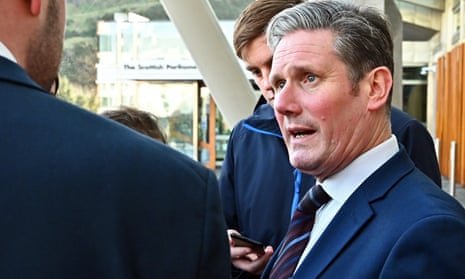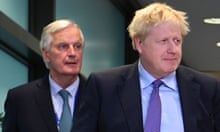Sir Keir Starmer has said he would argue for the reintroduction of EU free movement after Brexit, if he becomes Labour’s next leader.
The shadow Brexit secretary said his party must not be afraid to argue for free movement, and that EU citizens should receive “rights, not tolerance” from the UK.
“We need to make the wider case on immigration,” he said, speaking at a leadership event at Westminster Cathedral in London.
“We welcome migrants, we don’t scapegoat them. Low wages, poor housing, poor public services, are not the fault of people who come here: they’re political failure. So we have to make the case for the benefits of migration; for the benefits of free movement.
“I want people in this country to be able to go and work abroad, in Europe; and I want people in Europe to be able to come and work here. I want families to be able to live together – whether that’s in Europe, or here.”
Asked whether that meant he would argue for free movement to be restored, he replied: “Of course: bring back, argue for, challenge.”
Freedom of movement will formally end when the UK leaves the EU on Friday evening – though the accompanying rights will be retained during the transition period, which is due to end on 31 December.
Starmer appeared to be arguing for a new, but similar, arrangement to be negotiated reciprocally, as part of negotiations about the UK’s future relationship with the EU27.
By contrast, Boris Johnson’s government plans to introduce a points-based migration regime that would no longer give EU citizens a free pass.
Speaking on Brexit day, Starmer urged his colleagues, some of whom have been ardent remainers, to “let go”.
“We leave the EU tonight, and the leave/remain divide goes with it. That divide has cut across families, communities, regions, the country. And we need to let that divide go. Leave/remain ends tonight, and that includes for the Labour party.”
Starmer appears to be the frontrunner in the Labour leadership race, with 85 nominations from constituency Labour parties (CLPs) so far, against 44 for Rebecca Long-Bailey and 18 for Lisa Nandy.
Asked whether Labour’s policy of supporting a referendum, which he was instrumental in pushing the party to adopt, had damaged its electoral prospects, he said there were many reasons for December’s election result.
“Brexit of course was among them. But the argument that Brexit alone was the reason – and we would have soared to victory untroubled, without Brexit – is just plain wrong,” he insisted, adding that the public had lost trust in Labour as “a force for good”.
He denied it had been a mistake for Labour not to back Theresa May’s Brexit deal, which could have meant a closer economic relationship than that Johnson is expected to negotiate.
“Theresa May’s deal was a bad deal. It didn’t protect trade union rights, workplace rights, environmental rights, consumer rights. It was a bad deal which would lead to a very, very hard Brexit and we were right to oppose it. Let’s not rewrite that. Let’s not pretend that it was a good deal, somehow.”
Q&AHow does the Labour leadership contest work?
Show
The first stage of the contest was for potential contenders to get the backing of 22 fellow MPs by 13 January. Five MPs passed this threshold: Keir Starmer (88 nominations), Rebecca Long-Bailey (33), Lisa Nandy (31), Jess Phillips (23) and Emily Thornberry (23).
The second stage required each contender to win the support either of 33 constituency Labour parties (CLPs); or of three affiliates, two of which had to be unions, and which between them accounted for at least 5% of the affiliated membership. This had to be achieved before 14 February. Jess Phillips withdrew from the contest on 21 January. Emily Thornberry failed to attract the required number of members.
The ballot of members and registered supporters was due to open on 21 February, and closes at noon on 2 April. To be eligible to vote you must have been a Labour member on 20 January, or have applied to have become a £25 registered supporter by 16 January.
Corbyn’s successor - Starmer, Long-Bailey or Nandy - will be announced at a special conference in London on 4 April.
Starmer also criticised Johnson, saying he was the worst of the three Tory prime ministers he has seen since he became an MP in 2015. He described him as a man “without any principle or anchor”.
“We don’t give up on the fight for a close economic relationship which protects our jobs and our economy. We don’t give up on the argument that we need to collaborate and cooperate with our EU partners, on scientific research, medical research, arts, culture, education. We don’t give up on the argument on security either,” he said.
“We need to give our EU citizens rights, not tolerance: and that starts with the right to vote.”









